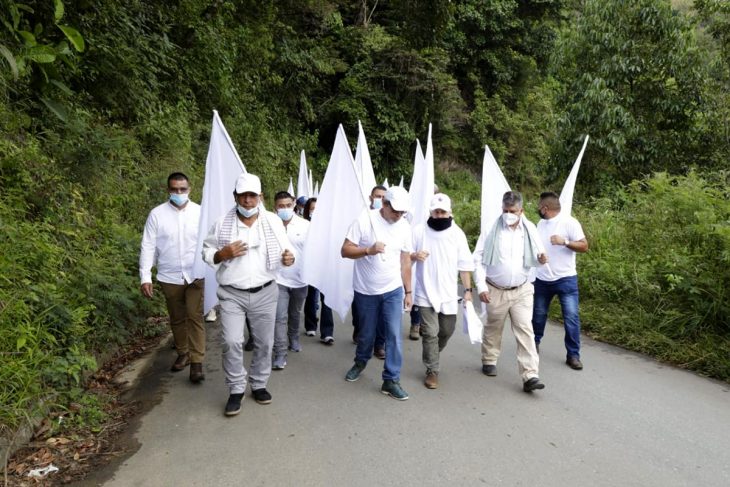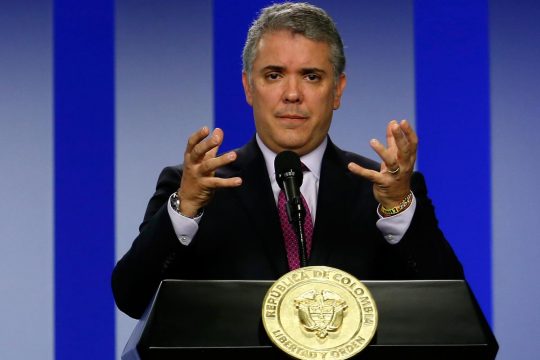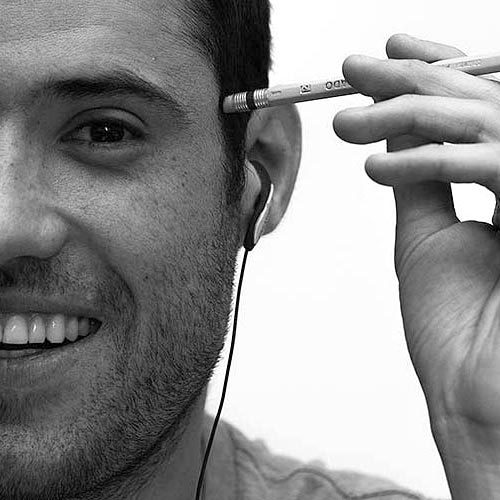On October 1, Colombia’s Constitutional Court unanimously voted to extend the mandate of the Truth and Reconciliation Commission (TRC). This means that the institution of the country’s transitional justice system tasked with truth-seeking will not close its doors in late November, as initially expected, but in mid 2022.
Colombia’s top court decided to grant the TRC a seven-month extension, plus an additional two months for outreach on its final report, after three victims’ organisations and two legal think tanks filed a lawsuit in June arguing that the Covid-19 pandemic hindered the commission from satisfying victims’ rights. The country’s strict lockdown, one of the longest in the world, forced the commission to cancel in-person events and interviews for half a year and rendered online participation either impossible or insecure for thousands of victims, they argued.
“The Court finds it proven that the effect of the pandemic and the measures adopted to contain it on the fulfilment of the Commission’s mandate was extraordinary, intense and serious,” justices concluded. Their decision gives the TRC a much-needed lifeline to complete work on its final report – but also highlights its dilemma of how to invest this extra time to ensure its work really underpins reconciliation and coexistence in a still divided country.
Election season averted
The court’s ruling has one major political effect: it ensures that the TRC’s final report on Colombia’s 52-yearlong armed conflict will not be unveiled this year. And more so, that it will avoid becoming a punching bag in what is already shaping out to be a divisive election.
Next semester will bring Colombians to the polls three times. They will first elect a new Congress in March and then, in May and very likely in a June runoff, they will choose a new president to succeed Iván Duque, who won the 2018 election campaigning against the peace deal signed by his predecessor with the Revolutionary Armed Forces of Colombia (FARC) guerrilla and a staunch critic of the transitional justice system stemming from it.
Most political parties – including several lawmakers in the ruling Democratic Centre party- and even president Duque welcomed the idea to extend the TRC’s timeframe and avoid its report becoming an electoral topic. However, former president Alvaro Uribe – whose August sit-down with three TRC commissioners was turbulent – told members of his party that it would be better if they publicly opposed an extension and suggested that a report which he deemed as biased could become a useful wedge issue, according to one person with knowledge of that conversation.
More time for what?
A central question remains: how will the TRC use its additional seven months of work?
When peace negotiators conceived the TRC as an extra-judicial body within a transitional justice system that also includes a special tribunal, a reparations programme and an institution tasked with finding those deemed missing, they envisioned a truth commission that would not merely focus on a final report but rather on a process-based approach that could unite Colombians around rejecting past violence and paving a way forward.
After all, the country has made great strides towards reconstituting what happened. Just the National Centre for Historic Memory has produced 102 book-length investigations documenting human rights violations and diverse effects of Colombia’s conflict, ranging from forced displacement, land dispossession, sexual violence and kidnappings to violence towards indigenous communities, local politicians, journalists or transgender persons.
However, in practice the TRC has concentrated the brunt of its work on research and truth-finding. Over two years of fieldwork, it has gathered an extensive repository of testimonies, documents and primary sources, conducting at least 13,821 interviews with 26,192 persons – including all five living former presidents - and receiving 890 reports from stakeholders. Its announced eleven-part final report will include a historical overview, multiple topical chapters and a series of recommendations on how to avoid a repeat scenario of violence.
In total, 73 percent of the TRC’s staff has been devoted to research, according to a recent congressional report. “The commission has concentrated the vast majority of its efforts on preparing the final report, to the extent that other functions have been either marginalised or understood as subsidiary tasks to this research”, it stated, underscoring a disconnection between the TRC’s two internal teams tasked with investigation and community outreach.
Truth as a public good
Over the past months, more voices have asked the commission step up public hearings and outreach efforts. Their reasoning is that TRC reports are most often exhaustive documents – that people seldom read.
“The report is important, but the TRC’s legacy will largely hinge on whether citizens make use of this truth as a public good to change attitudes, behaviours and perceptions in everyday settings,” says Marco Velásquez, a Javeriana University law professor whose academic and legal work has been linked to transitional justice. “This is what helps repair the social fabric in a still fractured and pained society, what fosters reconciliation”.
In total, the TRC has organised 442 public events since its inception, a large number of which have happened online after the pandemic forced the commission to rethink itself. Some of its more creative formats have been well received, with its TV series “Before the mirror” –anchored by a well-known actor - garnering over 300.000 viewers per episode and one of its podcasts reaching a million monthly listeners. Press coverage has increased. But few of these events have really gripped the country’s attention.
A method for catharsis
The TRC does have the toolkit to help harness an emotional connection with Colombians though, as underlined by a recent assessment funded by the US government’s USAID, as part of its significant financial support to the commission’s work on public outreach.
After months-long analyses, a team of transitional justice and evaluation experts determined that the TRC’s so-called ‘social dialogue’ spaces have robust methodologies and a proven success in fostering empathy and improving people’s understanding of what happened. Almost 90 percent of 1.400 participants surveyed reported an emotional connection to the victims, they concluded. These events were also successful in changing the perception of those wary of the TRC, with researchers noting that a significant number of interviewed participants who had a negative view or none at all later said that it had changed favourably.
In a similar vein, the multiparty report identified two areas of the TRC’s mandate where work was lagging: documenting individual or collective experiences of resilience and positive transformations carried out by organisations and institutions throughout the war. Both could in fact inspire ordinary Colombians untouched by conflict.
The social impact researchers also warned that a significant amount of persons attending TRC events are repeat participants, suggesting that the TRC should consider if it has prioritised people who are already attuned to it and largely veered away from those who are sceptical or indifferent. In particular, they stressed that businessmen and the private sector remain - as Justice Info has told - a blind spot in the commission’s outreach efforts.
Direct actors missing in action
But it might not be the only blind spot. According to the report from the Colombian Congress, an overwhelming majority – around 92,5 percent – of the 23,000 persons the TRC had interviewed by December 2020 were direct victims of the armed conflict. While this makes sense in a country where they number 9 million – or one of every six Colombians – it also means that other groups might be underrepresented.
Only 2 percent of TRC’s interviewees can be classified as actors who participated directly in the conflict, its authors concluded. This means only some 292 former rebels, including members of the FARC, paramilitary groups and other left-wing guerrillas, and 100 members of Colombia’s military or police had been interviewed until last year.
This might explain why, as the US government’s report shows, many persons feel that there have not been enough public hearings in which former combatants and state agents own up to their responsibilities and ask their victims for forgiveness. That doesn’t mean that no such events have taken place, but it underscores how they have rarely galvanised society.
In early August for instance, the TRC recreated a 2002 ‘march for life’ that FARC squadrons infamously interrupted, kidnapping two respected politicians - governor Guillermo Gaviria and former defence minister Gilberto Echeverri - whom they murdered the following year. Nineteen years later, former FARC commander in chief Rodrigo Londoño asked their relatives for forgiveness, as they completed the march together in an emotional journey that went relatively unnoticed.
Instead, when another former rebel, senator Carlos Antonio Lozada, coldly told a TRC participant during an event in June that he wasn’t planning on asking kidnapping victims for forgiveness that specific day because it would be something “contrived for the purposes of being recorded in the press”, his words made the news everywhere.
Now that the Constitutional Court’s ruling allows the TRC to dodge the nastiness of a fraught election season, the commission will have to plan where to concentrate its efforts over the coming months. Some pressing issues remain, including how quickly Duque’s government will allocate funds for the commission to operate next year.
But perhaps no soul-searching is more important than its decision on whether to dedicate the next seven months exclusively to complete its final report or ramp up its efforts to showcase victims expressing their pain and perpetrators acknowledging it. That is, the kind of images and scenes that could end up shaping the TRC’s legacy as much – or more - than its report.








